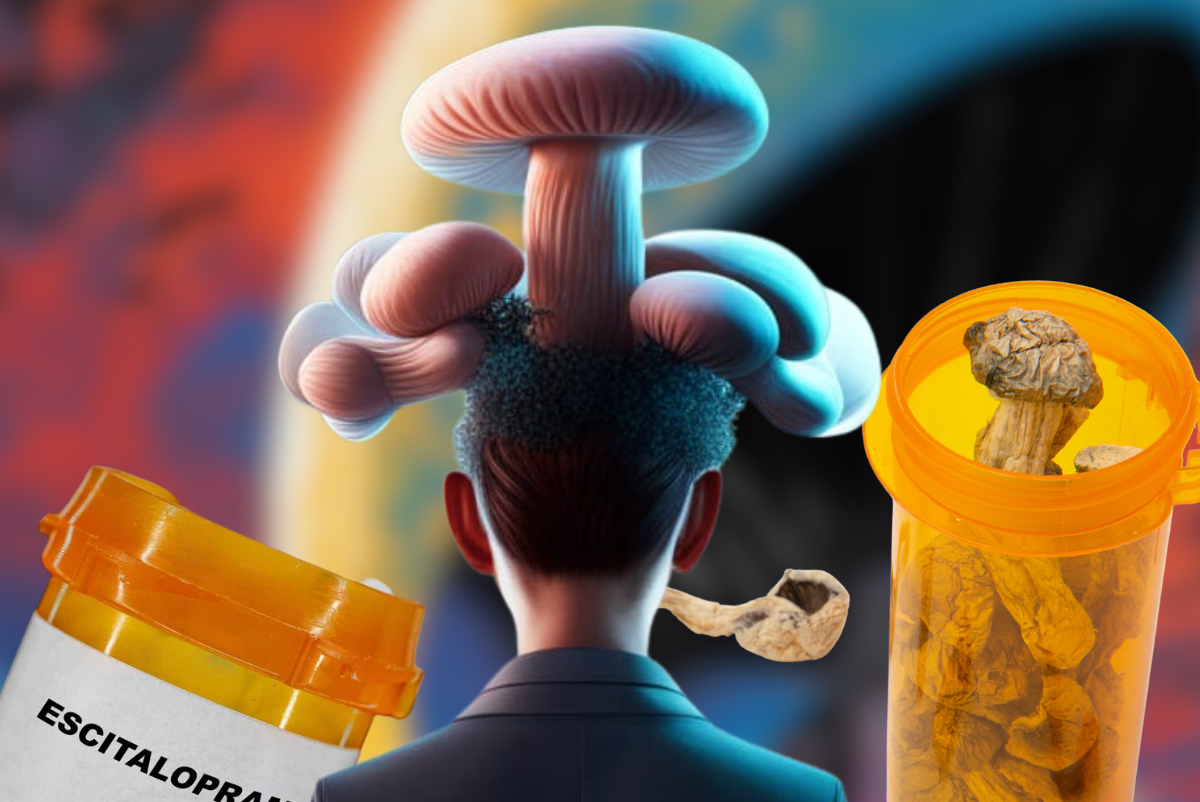How does psilocybin, a psychedelic substance that remains illegal in the vast majority of the United States, compare to the frequently prescribed SSRI Escitalopram to treat depression?
According to the results of a study published by the Cambridge University Press last June, pretty good. But not so much that the hallucinogen turned out to be that superior.
“Psilocybin treatment was observed to produce a more robust antidepressant response, resulting in decreases in neuroticism, introversion, dislike, and impulsivity, compared to escitalopram-related decreases in neuroticism, dislike, and impulsivity,” concluded the study authors. “However, no formal difference in the extent of response was found between therapies.”
59 patients diagnosed with moderate to severe major depression participated in the Phase 2, double-blind, randomized, active comparator-controlled study, which pooled 30 individuals on psilocybin (PT) and 29 on escitalopram (ET) treatment. ). studying the changes in personality related to each treatment, both of which are coupled with additional psychological support, including psychoeducation, therapeutic alliance building and a form of acceptance and commitment therapy.
To keep the study “blind,” however, both groups still received psilocybin, with the PT receiving a 25mg dose of Compass Pathways’ COMP360 and the ET group receiving only 1mg of psilocybin on day one. of dosage. Neither the patients nor the staff administering the medicine were aware of the dosage they would receive. Then, after the psychedelic effects wore off, the researchers measured the participants’ acute experience.
After the initial dosing day, PT patients were sent home with placebo capsules and asked to take one capsule per day for three weeks until the next dosing visit. The ET group received capsules containing 10 mg of escitalopram and were asked to take one a day as well. That cycle was completed once again, for a total period of six weeks. Six months later, patients were emailed links to the survey with additional self-assessment questionnaires.
Ultimately, the researchers concluded: “The personality changes in both conditions were in a direction consistent with improvements in mental health. With the possible exception of trait uptake, there were no convincing differences between conditions justifying conclusions regarding selective PT action (v. ET) on personality.
However, a research paper published a month earlier in Journal of Affective Disorders they analyzed data from the same study and came to a slightly different conclusion.
“With psilocybin therapy, but not with escitalopram, improvements in mental health outcomes (e.g., well-being, depression severity, suicidal ideation, and anxiety) occurred through reductions in experiential avoidance,” the authors wrote. .
Experiential avoidance is a psychological term that refers to the patient’s reluctance to stay in touch with aversive experiences such as painful feelings, thoughts, and emotions. According to the National Institutes of Health, AE is often associated with the development and maintenance of emotional problems.
In other words, psilocybin allowed patients to feel more comfortable dealing with issues that might be the root cause of their depression, giving researchers another lead that it might be more effective in the long run.
“These findings provide support for the role of experiential avoidance reduction as a putative mechanism underlying positive therapeutic outcomes of psilocybin therapy,” concluded the authors. “The current findings may help personalize, refine, and optimize psilocybin therapy and delivery.”
#Psilocybin #Escitalopram #Study #Compares #Effects #Depression
Image Source : psychedelicspotlight.com
